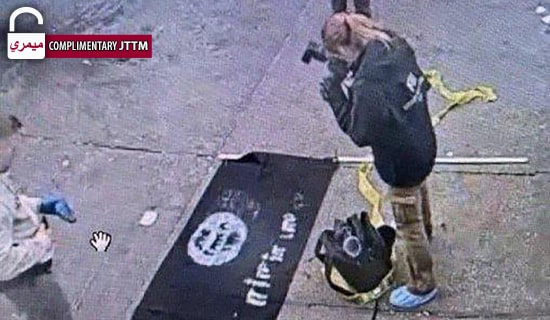On June 19, 2016, Palestinian writer Majdi 'Abd Al-Wahhab wrote an article on the Elaph website titled "Each Extremist Serves and Feeds the Other - from the Mufti to the Village Leagues," in which he showed how the Jewish and Palestinian extremists play into each other's hands and ensure each other's survival.
The following is a translation of the article:
"A couple of days ago, I was speaking to a fellow journalist about the Orlando shooting and its impact on Muslims in the West and on the U.S. elections. Many Arab writers contend that the one who benefitted most from the shooting was the American [presidential] candidate [Donald] Trump, and this confirms the theory that extremists serve one another. My friend tried to convince me of this claim by citing two examples from the Palestinian reality...
"The first incident occurred in 1939 during the Saint James conference, a round-table [conference] in London that was Britain's last attempt to resolve the Jewish-Arab conflict. According to the story, the Mufti [of Jerusalem], Hajj Amin Al-Husseini, who at the time was [living] in exile in Lebanon, issued a decree banning the Palestinians from attending the conference on the grounds that he [the Mufti] was their sole legitimate representative. Haim Margaliot-Kalvarisky, who was a prominent figure in [the administration of] the Jewish Agency and [later] in the Israeli left... came to Ben Gurion with the good news - as he saw it - that there were groups of Palestinians from Ramallah and Nablus who were willing to take part in the conference in spite of the Mufti's [decree]. Ben Gurion answered dryly: 'There is no need for that, because the Mufti serves our interests better.'
"The second incident occurred more recently, in the time of the West Bank Village Leagues,[1] whose establishment was [approved] by [then Israeli defense minister] Ezer Weizman [in 1978], and which were violently opposed by [both] the Palestinians and the Jews, in particular the settlers. According to the story, attorney Elyakim Haetzni, one of the heads of the settlement [movement] who lives in Kiryat Arba and was one of the Village Leagues' most bitter enemies, approached Ariel Sharon in 1982. [Sharon], who was defense minister [at the time], needed the support of the settlers, having lost his popularity due to the Sabra and Shatila massacre. Haetzni demanded that Sharon dissolve the Village Leagues, explaining: "Of Arafat I am not afraid [because] with him we will never talk. But I am afraid of Mustafa Dudin [of the Village Leagues] because we will have to make concessions to him.'
"These two stories certainly clarify the theory that extremists serve one another. In the first story, Ben Gurion thought that the extremist Mufti Al-Hajj Amin Al-Husseini served the interests of the Jews better than the moderate Palestinians, and in the second story, Elyakim Haetzni believed that the moderate Palestinians were a greater danger to his [settlement] enterprise than the extremist Arafat. Dear reader, do not believe that one extremist will eliminate his rival, the extremist [on the other side. On the contrary,] each of them ensures the survival of the other."[2]
Endnotes:
[1] The Village Leagues, formed in the late 1970s in several West Bank villages and towns, saw themselves as a Palestinian leadership alternative to the PLO, and aimed to lead the Palestinians to peaceful coexistence with Israel. They were dissolved by then-defense minister Sharon in late 1982.
[2] Elaph.com. June 19, 2016.




